
Sustainability report
Sustainability highlights 2025

We are supporting businesses and organisations of all shapes and sizes, as well as Local Authorities (and their residents) in navigating this critical period of policy change. In many cases we are helping them to identify and seize the new opportunities that some of these policies present to prevent, reduce, reuse and recycle waste.
Sustainability strategy
Our strategy is based on three strategic pillars:
Strategic Pillars
Strategic Ambitions
Targets to 2030
Alignment to UN SDGs
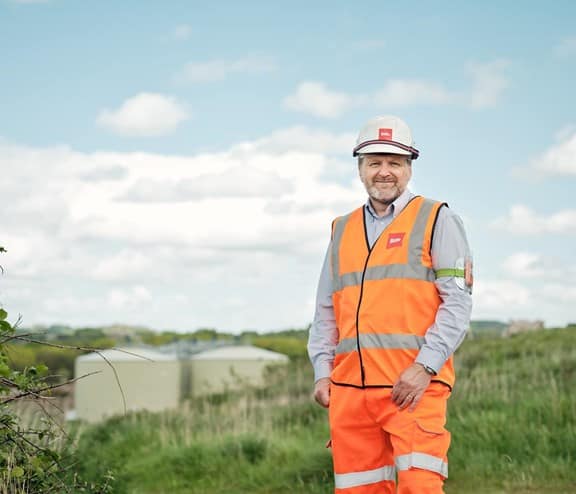
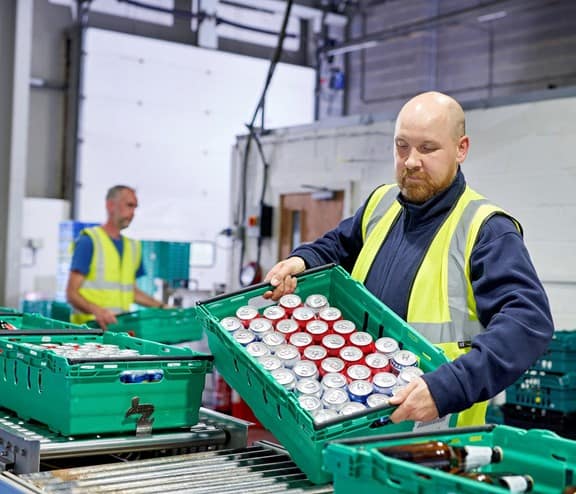
In 2025 we have strengthened and broadened our capabilities and capacity through a series of strategic acquisitions. By offering our customers end-to-end sustainable waste management and closed-loop solutions, we help them move waste up the hierarchy towards a circular economy.
Reducing the amount of waste created in the first place is vitally important – and often overlooked. We actively work with our customers to help them understand how they can reduce their waste and, where appropriate, redistribute or reuse surplus, helping them to meet their own sustainability goals.
Over the last year, we have stopped over 46,000 tonnes of food and drinks from going to waste – that’s around a 2.3% increase on the year before!
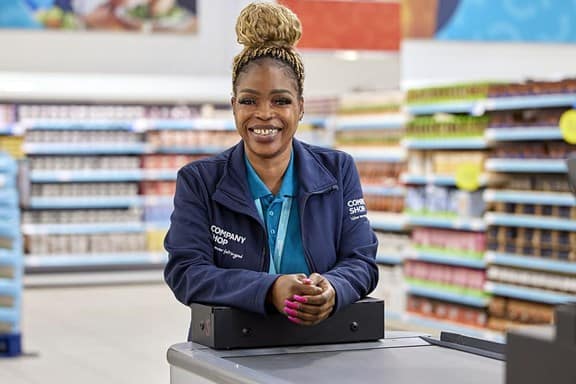
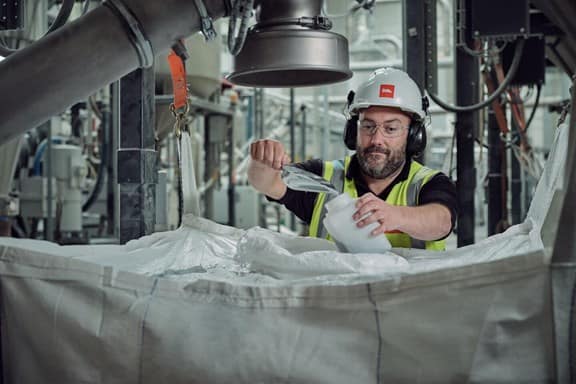
Biffa Polymers is at the forefront of plastic recycling in the UK, operating multiple state-of-the-art reprocessing facilities. We have increased our plastic recycling capacity from 63,000 tonnes to 213,000 tonnes since 2019. This means we have met our goal of tripling our plastics by 2025 and are on track to meet our target of quadrupling it by 2030.
Around 95% of the waste plastics Biffa trades from our sorting and transfer facilities is sent to companies within the UK, with the remainder kept within the Organisation for Economic Co-operation and Development (OECD) countries.

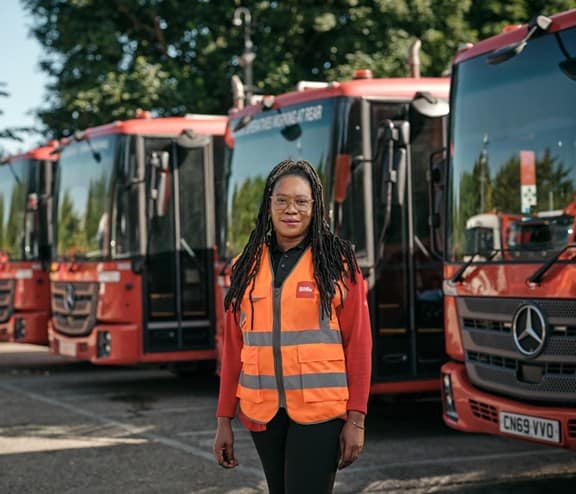
Thanks to a wide range of measures in financial year 2024, we have achieved a 37% reduction of Scope 1 and 2 emissions against our 2019 baseline.
Our emissions target progress has has been achieved through the continued improvement of our landfill gas capture, and efficiency gains within our operations.
We now have 201 alternative fuelled vehicles in our waste collections fleet, including our first electric skip loader which operates on the Isle of Wight.
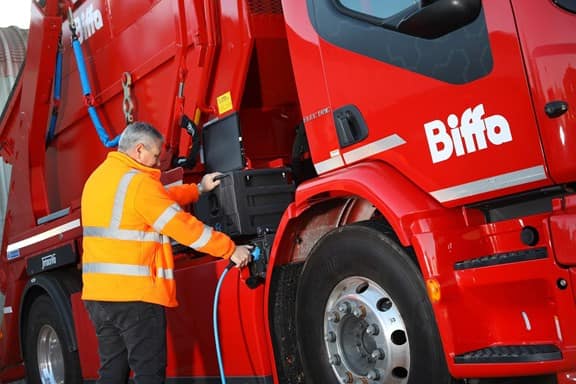
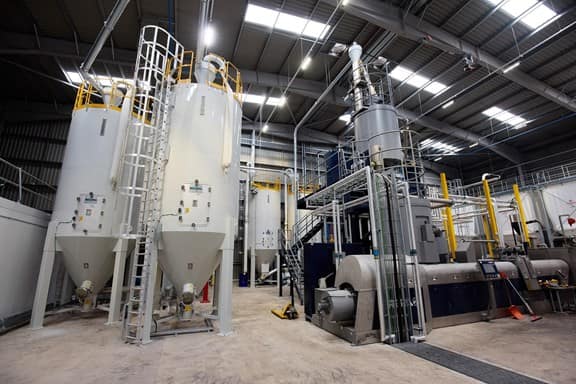
We recognise that the processes required to turn waste into valued resources and help reduce our reliance on fossil fuels can be energy intensive. To minimise the impact of these essential processes, our Biffa electricity tariff acquires energy from 100% renewable sources. We are also continually looking to make our operations as efficient as possible and reduce the intensity of our electricity usage.
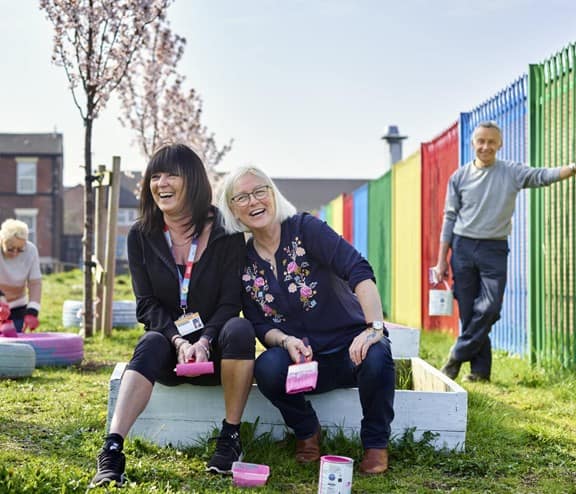
As a business with national scale, we operate in many communities across the UK. We take our responsibility to those communities seriously and ensure our activities deliver local social value.
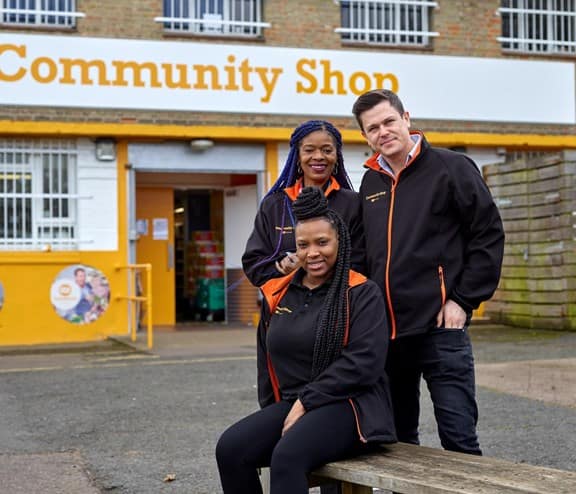
During the year, Community Shop have delivered over 54,000 personal development programmes.